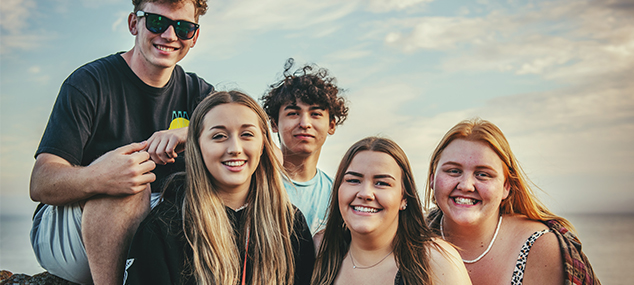
Education aimed at helping teenagers make safer choices is once again coming to high schools in the Northern Rivers this November.
The Reducing Risk and Improving Student Knowledge (RRISK) webinars with Year 11 students will be delivered from 9am-10.30am from Monday 13 to Wednesday 15 November to help students stay safe on the road and at parties.
The locally developed training has been delivered by Northern NSW Local Health District (NNSWLHD) for over 20 years, with research now showing it has a long-term effect on reducing motor vehicle crashes and severity.
Across NSW in 2021, young drivers aged under 26 years make up 14% of all licence holders, yet accidents involving that cohort made up almost 25% of road deaths.
A 13-year, independent study found that RRISK participants were 24% less likely to have had any crash and 42% less likely to crash in darkness than non-participants.
NNSWLHD Acting Director Integrated Care and Allied Health, Kathryn Watson, said the program’s success lay in the collaboration between the local Health Promotion Team and safety advocate Paul Dillon from Drug and Alcohol Research and Training Australia.
“Through RRISK, we’re able to share current information with students on alcohol, drugs, vaping, driving and how to respond to peer influence, and teach young people to plan ahead on how they are getting to a party and getting home safely,” Ms Watson said.
“The program helps students understand the facts about drugs, vaping and alcohol so they can make informed decisions. It encourages young people to look after friends, whether that be not letting them drive, giving them water or something to eat, or not leaving them on their own.”
Prior to the webinars, students can also complete ‘Save a Mate’ training which builds students’ confidence in placing someone into a recovery position, how to help a friend in trouble and how to respond in an emergency.
“The webinars are very interactive and engaging, and students ask many questions which our Health Promotion team respond to during the sessions,” Ms Watson said.
In 2022, more than 1800 students from 27 schools participated in RRISK, with 83% of students completing the evaluation agreeing or strongly agreeing that attending RRISK made them more capable of looking after their friends.
High schools can receive the RRISK registration form by emailing NNSWLHD-HealthPromotion@health.nsw.gov.au. For more information about reducing risk and harm for teenagers, visit www.healthupnorth.info/teens